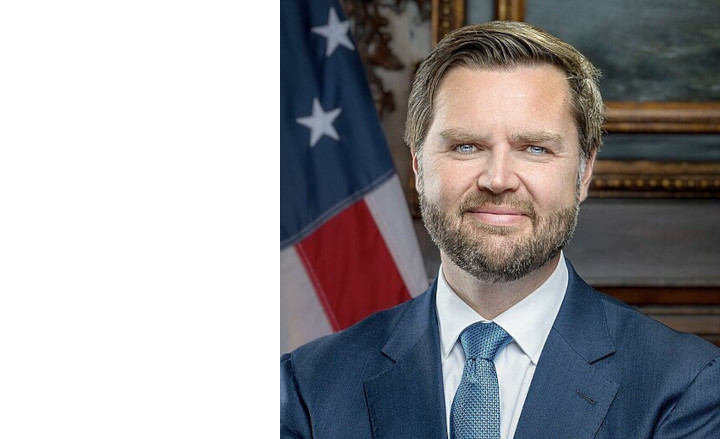J.D. Vance makes a commonsensical comment about a Christian notion of love and immediately he is subjected to condemnation. Here is what he said that has “progressives” so upset.
“There’s this old school—and I think it’s a very Christian concept, by the way—that you love your family and then you love your neighbor and then you love your community and then you love your fellow citizens and your own country, and then after that you can focus and prioritize the rest of the world.”
He also said, “A lot of the far left has completely inverted that. They seem to hate the citizens of their own country and care more about people outside their own borders. That is no way to run a society.”
As we shall see, Vance was right about what he said about Christian love. Regarding his quip about the far left hating America, it does not need to be defended—it is axiomatic. Indeed, it is one of their most defining characteristics.
Father James Martin was one of Vance’s more prominent critics. He said Vance’s comment about love “misses the point of Jesus’ Parable of the Good Samaritan.” But it is Martin who has missed Vance’s point: he never mentioned Jesus or the Good Samaritan. As he made clear when asked about his critics, Vance defended himself by referencing ordo amoris, or ordered love.
Vance was not taking issue with the biblical injunction to “love thy neighbor as thy self.” This obligation is found in the Old Testament (Leviticus 19:18), as well as in the New Testament (Mark 12: 28-34). He understands that our “neighbor” means everyone. He is simply offering a practical understanding of the locus of love: it should begin with our family, and then extend outwards.
The idea of “ordered love” is indeed a Christian conception of love. It was given to us by Saint Augustine. “Virtus est ordo amoris,” he wrote, which means virtue is the order of love, or love set in proper order. Vance is also right to say that this is an “old school” observation. In the First Letter to Timothy (5:8), it is written that “whoever does not provide for relatives and especially family members has denied the faith and is worse than an unbeliever.”
Vance said that “the idea that there isn’t a hierarchy of obligations violates basic common sense. Does [anyone] really think his moral duties to his own children are the same as his duties to a stranger who lives thousands of miles away? Does anyone?”
Practically speaking, we are limited in the number of people we can be friends with, never mind love.
Anthropologist Robin Dunbar has done the most extensive work on this subject; his research includes hunting and gathering societies. He found that humans are capable of having 15 good friends, 50 friends, 150 meaningful contacts, 500 acquaintances and 1500 people that we can recognize. Therefore, loving thy neighbor is a tall order, one most likely to be achieved by loving our family members, and then embracing those outside our family unit.
Vance’s remark about the “far left” caring more about people they don’t know than their fellow Americans is incontestable. The champions of humanitarianism as identified by the “far left” are Rousseau and Marx.
Rousseau had five illegitimate children, refused to even give them a name, never mind support them. Marx impregnated his maid and made his colleague, Engels, assume paternity of his son, Freddy. But both of them proclaimed great love for mankind.
Rousseau and Marx set the table for left-wing Americans: they are the least generous persons in the nation, as measured by charitable giving and volunteering. The most generous are practicing people of faith. It’s not hard to figure out. The former believe it is the job of government to help the poor, not individuals. Religious Americans see it as their job.
Mother Teresa understood what Vance was saying; she also knew that people like Rousseau, Marx and their ilk were phonies. “It is easy to love those who live far away,” she said. “It is not always easy to love those who live right next to us.”
It may be that the reaction against Vance has less to do with what he said than it is does with who he is: he is a young convert to Catholicism, a conservative, and Vice President of the United States. Ergo, Christians on the left have their antennas in the stratosphere looking for anything he says that they can pounce on. They are off to a lousy start.








